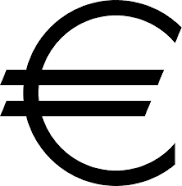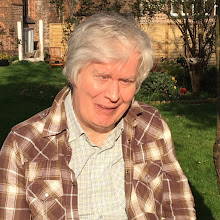As Putin declines due to cancer and the consequences of his medication, who used next?
OPERATION SUCCESSOR
Putin gets to choose
Putin has gone to extraordinary lengths to sideline rivals and rewrite the constitution to maintain his grip on power. The chance that he will make way voluntarily for a new leader is tiny, but it’s no longer negligible. Here’s who the Russian leader might make way for:
The Superspy — Nikolai Patrushev
Should Putin accept that his position has become untenable, Kremlin watchers see Nikolai Patrushev as his most likely successor. The former head of the FSB spy agency, now secretary of the Security Council of Russia, has the advantage of sharing a worldview with Putin — one that is shot through with hostility toward the West in general, and toward the United States in particular
If anything, Patrushev’s views are more extreme: In a Security Council meeting days before Putin ordered troops into Ukraine in February, Patrushev accused Washington of pursuing a hidden agenda to bring about “the collapse of the Russian Federation.” It’s a familiar trope: Patrushev years ago accused former U.S. Secretary of State Madeleine Albright of saying that Siberia and the Far East should not belong to Russia. This allegation had no known basis in fact, leading to speculation that it originated in a top-secret project where Moscow spies hired mindreaders to tap into the thoughts of Western leaders.
With Putin spending most of his time in the Kremlin, Patrushev has assumed a more active role, recently visiting China amid growing concerns there over the war. Age is not on Patrushev’s side, however: At 71, he is two years older than Putin, and should he become president would likely only be a transitional figure.
Likelihood:
Scariness:
The Lackey — Dmitry Medvedev
If there’s anyone Putin can trust, it’s Dmitry Medvedev: The Russian leader gifted the presidency to his former right-hand man from St. Petersburg in 2008. The job swap enabled Putin to keep power in his own hands while complying with the constitutional term limits that then applied. Medvedev duly kept the presidential seat warm while getting a passing grade as a modernizer — governing by iPad and touring Silicon Valley. But, when his four-year term was up, Medvedev meekly made way for Putin’s return to the Kremlin.
Medvedev went on to serve for eight more years as prime minister before in 2020 becoming deputy chairman of the Security Council — again directly subordinate to Putin who heads it. War has been unkind to Medvedev, whose attempts to shed his image as Putin’s less-evil twin by posing as a nuclear madman have been drowned out by outbursts of hysterical laughter from readers of his Telegram channel. At 57, Medvedev is still young enough to rule Russia again but his own fate is inseparably tied to Putin’s.
Likelihood:
Scariness:
The Bodyguard — Alexei Dyumin
By his own account, Alexei Dyumin once saved Putin from a night-time attack by a brown bear, emptying the clip of his service pistol at the beast’s feet as it stood menacingly in the doorway of a mountain retreat. Fearlessly loyal, yet still humane (the bear survived) — what better qualifications to succeed Putin, while ensuring the elder statesman can enjoy a comfortable retirement and avoid being tried in The Hague for war crimes?
The highest-profile veteran of the Federal Guard Service — Russia’s answer to imperial Rome’s Praetorian Guard — Dyumin also tasted success on the battlefield as a special forces commander in the 2014 operation to annex the Crimean Peninsula. Two years later, Putin named him governor of the Tula region (he was later elected by a landslide). Dyumin is, by some accounts, a Putin favorite but his preferred status would make him vulnerable should a power struggle break out in the Kremlin.
Likelihood:
Scariness:
The Princeling — Dmitry Patrushev
Putin’s allies in the Kremlin aren’t getting any younger but that doesn’t mean that the regime won’t seek to perpetuate itself. It was Nikolai Patrushev who, on being appointed to run the FSB in 2000, called Russia’s spy elite the “new nobility.” A generation on, his son, Dmitry Patrushev, has emerged as a princeling and credible potential successor. The 44-year-old was appointed agriculture minister in 2018, having earlier graduated from the FSB academy and headed the state-owned Russian Agriculture Bank.
However remote the prospect, a princeling president could ease fears in the wider world that Russia, facing defeat in Ukraine, would launch a suicidal nuclear escalation. A hereditary ruler would, by definition, have a stronger instinct for survival than a crazed dictator holed up in an underground bunker.
Likelihood:
Scariness:
A KREMLIN PLOT
Putin is ousted, incapacitated or assassinated
For all the talk of a managed succession, the record shows that occupants of the Kremlin tend to leave feet first: Vladimir Lenin and Joseph Stalin both died of natural causes, as did Leonid Brezhnev and — in short order — his two immediate successors. The last serving head of state to be assassinated was Czar Alexander II, in 1881.
There are, however, precedents for leaders being forced out of office — Nikita Khrushchev in 1964 and Mikhail Gorbachev, whose fall in 1991 brought the final curtain down on the Soviet Union. As often as not, the struggle for succession has been fought out among Kremlin insiders — famously compared by British wartime leader Winston Churchill to “a bulldog fight under a rug.”
The Troika
Perhaps the closest historical parallel to the autocratic Putin is that of Stalin, whose death in 1953 sparked a power struggle in which a short-lived “troika” ended with the execution of one of its members, hated former secret police chief Lavrenty Beria. Khrushchev went on to sideline premier Georgy Malenkov in 1955, emerging unchallenged as leader of both the Communist Party and the government. A year later, he gave a secret speech denouncing the cult of personality around Stalin, initiating a thaw after years of terror.
It’s tempting to conclude that, were Putin to be ousted, incapacitated or assassinated, and replaced by a collective leadership, his demise might lead to a de-escalation of Russia’s proxy war with the West. “The center of gravity of the elite is against the war. They have never liked it,” argues Nigel Gould-Davies, a British former ambassador to Belarus who is now a senior fellow for Russia and Eurasia at the International Institute for Strategic Studies.
Regime change in autocracies typically comes from within, observes Gould-Davies, who rates the probability of a managed transition at “zero.” Putin missed the chance to orchestrate his succession when he rewrote the constitution two years ago, he adds: “Now his position is in greater jeopardy — there is no guarantee of a peaceful after-life.”
Speculating on who might conspire to oust Putin is a fool’s errand but, if history is anything to go by, the representatives of the “power ministries” on the Security Council would be in the mix — however loyal to Putin they may now seem. Watch out for Patrushev Sr., FSB boss Alexander Bortnikov, Interior Minister Vladimir Kolokoltsev, and Defense Minister Sergei Shoigu (a wily survivor who has, however, had a terrible war).
Likelihood:
Scariness:
The Premier — Mikhail Mishustin
Article 92.3 of the Russian constitution states that, in all cases where the president is incapable of carrying out his duties, “they shall be temporarily fulfilled” by the prime minister. That puts Mikhail Mishustin in pole position to take over as acting head of state should Putin fall seriously ill or be assassinated. Mishustin, 56, was Russia’s chief tax collector before being named prime minister in 2020, when Putin pushed through those constitutional changes that, effectively, opened the way for him to become president for life.
The bald, burly Mishustin has served as a loyal crisis manager, working to minimize the economic fallout from Western sanctions. But there’s a potential twist: If Putin is incapacitated, the constitution does not explicitly allow him to stage a comeback should he recover. Could it be a case of finders keepers?
Likelihood:
Scariness:
The Muscovite — Sergei Sobyanin
The quintessential insider, Moscow Mayor Sergei Sobyanin could emerge as a contender to succeed Putin if protests in the capital escalate to the point where repression is no longer viable and constructive engagement is needed to complete an orderly transition. This is by no means a base-case scenario: Protests against Putin’s mobilization order are nowhere near reaching the scale of the Euromaidan movement in Kyiv that forced Ukrainian President Viktor Yanukovych from power in early 2014.
During his 12-year tenure, Sobyanin has proved to be an unspectacularly competent machine politician. He did a decent job of making the metropolis more livable — sprucing up parks, restoring historic buildings and upgrading public transport — until much of that progress was undone by war and sanctions. The 64-year-old was previously governor of the oil-rich Tyumen province (from 2001-05), head of the Kremlin administration (2005-08), and deputy prime minister to Putin (2008-10).
Likelihood:
Scariness:
COLOR REVOLUTION
Russians rise up against Putin
Putin’s pathological resolve to wipe Ukraine off the map stems from his terror that it could export a people-power “color” revolution to Russia. Ukrainians have not once, but twice, removed their leaders through peaceful protest, in the Orange Revolution of 2004-05 and the Euromaidan protests a decade later. Could it happen?
The Prisoner — Alexei Navalny
Anti-corruption campaigner Alexei Navalny would be the prime candidate to lead a Russian color revolution, having helped organize protests against Putin’s return to the presidency a decade ago. Those demonstrations — the largest in post-Soviet Russia — ultimately failed. But Navalny persisted, channeling his efforts into exposing corruption. The state retaliated by poisoning Navalny with a nerve agent and jailing him on trumped-up fraud charges.
Showing extraordinary courage, Navalny continues to oppose the war from behind bars. But his chances of following Nelson Mandela from a prison cell to the presidency are slight. Observers can imagine a scenario in which Putin is ousted and Russia’s next leader, in a gesture of reconciliation toward the West, releases political prisoners such as Navalny, journalist Vladimir Kara-Murza or video blogger Ilya Yashin. But that would be only the first step on a long and tortuous path to power in a country that has yet to hold a free or fair election.
Likelihood:
Scariness:
The Exile — Mikhail Khodorkovsky
Former oil tycoon Mikhail Khodorkovsky is another regime critic who took on Putin and lost, ending up being stripped of his Yukos oil empire, thrown into jail for 10 years and finally going into exile. His Open Russia foundation, banned in Russia, continues to campaign for reform, but Khodorkovsky himself displays no obvious ambition to stage a triumphant return and play a leadership role in a post-Putin Russia.
Khodorkovsky, 59, strongly supports Ukraine’s resistance against Russia, recently urging the West to supply more weapons. Yet his history as a ruthless businessman has not been forgotten by older Russians who still harbor bitter memories of the chaotic Yeltsin years, when an oligarch cabal amassed vast assets through corrupt privatizations that stripped the nation of its Soviet industrial patrimony.
So there he is a very real question, who would want jail! An attacking their cists the country of the Ukraine, has totally destroyed the reputation of Russia. And it is all set for a revolution!



















